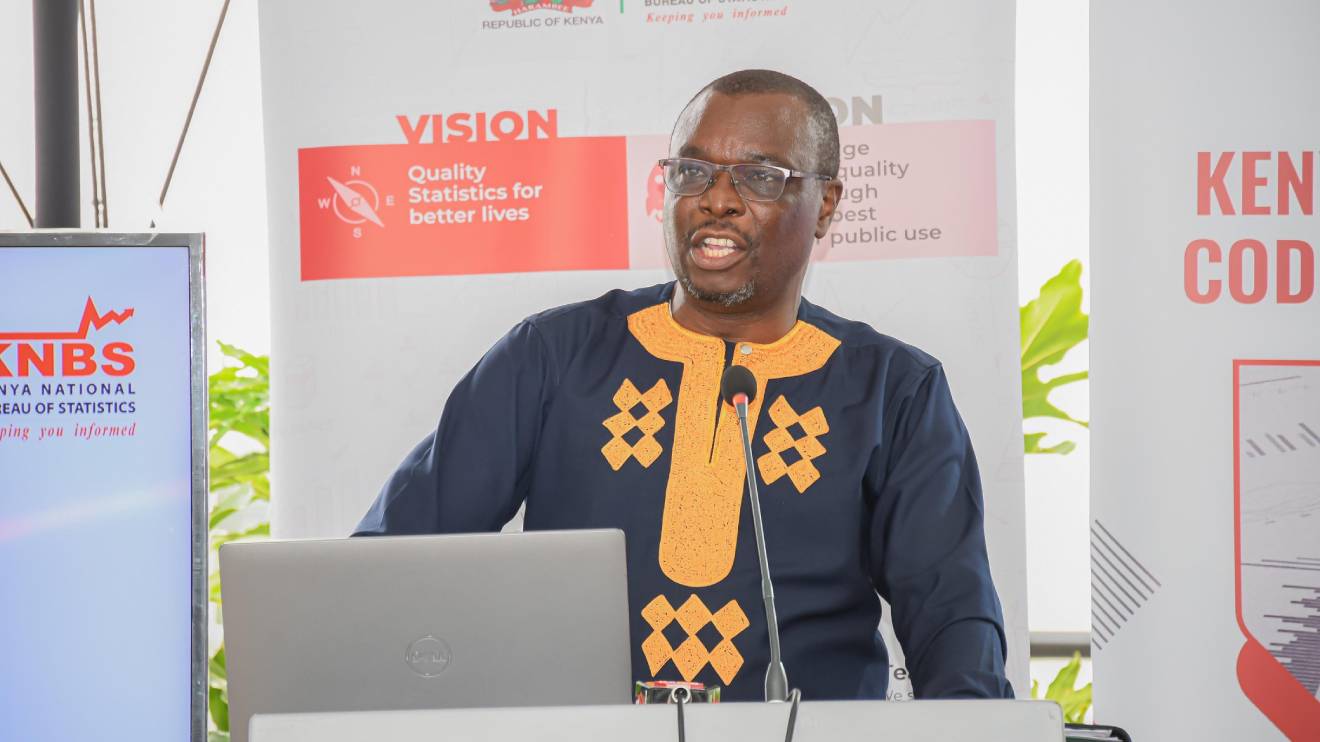Kenya's economic growth slowed to 4.0 per cent in the third quarter of 2024, down from 6.0 per cent recorded in the same period in 2023, according to the Kenya National Bureau of Statistics (KNBS).
The report attributed the slower growth to contractions in key sectors such as Construction, which shrank by 2.0 per cent, and Mining and Quarrying, which recorded an 11.1 per cent decline.
However, the KNBS noted that sectors like Agriculture, Real Estate, and Transportation showed positive performance, helping to steady the economy.
KNBS reported that Agriculture grew by 4.2 per cent, supported by favourable weather conditions.
The bureau highlighted a significant increase in sugarcane deliveries, which rose to 2.5 million metric tonnes from 874,000 metric tonnes in Q3 2023.
Read More
Milk intake also increased to 224.1 million litres, while tea production declined by 12.2 per cent.
The Manufacturing sector recorded 2.3 per cent growth, driven by increased production of sugar and soft drinks, although declines were observed in cement production and motor vehicle assembly.
The KNBS noted that inflation averaged 4.08 per cent during the quarter, down from 6.93 per cent in the same period last year.
This decline was attributed to reduced food and beverage prices. Additionally, the Kenyan Shilling strengthened against major currencies such as the US Dollar and Euro, appreciating by 10.1 per cent and 9.3 per cent, respectively.
However, it depreciated against the Japanese Yen and South African Rand, weakening by 12.7 per cent and 6.7 per cent, respectively.
Electricity and water supply grew marginally by 0.9 per cent, with hydropower generation increasing by 21.0 per cent.
KNBS reported that this growth was offset by reductions in thermal, geothermal, wind, and solar electricity generation.
Meanwhile, the Construction sector faced challenges, with a 10.0 per cent decline in cement consumption and a 40.9 per cent drop in bitumen imports.
According to KNBS, the Transportation and Storage sector expanded by 5.2 per cent, driven by a 14.1 per cent increase in port throughput. However, the number of passengers using the Standard Gauge Railway (SGR) fell by 7.2 per cent.
The Accommodation and Food Services sector showed a strong recovery with 13.7 per cent growth, which KNBS attributed to a rise in visitor arrivals through major airports.
Financial and insurance activities grew by 4.7 per cent, bolstered by a 2.6 per cent increase in private sector credit, according to KNBS.
However, the bureau noted reduced activity at the Nairobi Securities Exchange (NSE), where the volume of shares traded declined to 334 million from 424 million in Q3 2023.
Despite this, the NSE 20 Share Index rose by 17.8 per cent, reflecting improved market sentiment.
KNBS stated that these mixed-sectoral performances underscore the challenges and resilience of Kenya's economy as it navigates a complex global and domestic environment


 (1)-1752516757.jpg)

 (1)-1746786193.jpg)



 (1)-1752442958.jpg)